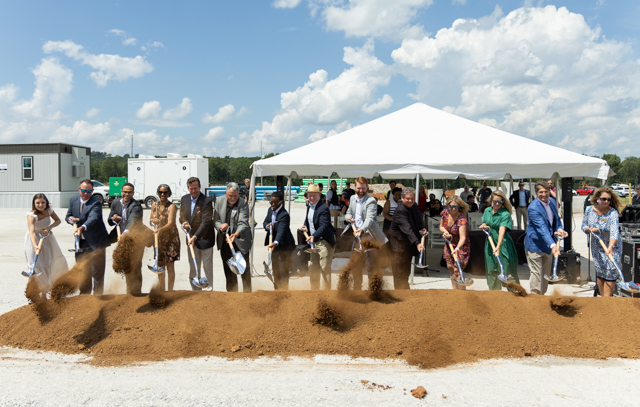Behind the push for ‘R2’ designation at WKU
Published 5:30 am Sunday, January 19, 2025

- Western Kentucky University President Timothy Caboni speaks Aug. 24 during the WKU convocation at Van Meter Hall.
This is a follow up to last weekend’s article, “Bill filed to allow research doctorates at WKU.”
On Jan. 8, State Rep. Michael Meredith, R-Oakland, proposed enabling Western Kentucky University to offer up to five research doctoral degree programs deemed “directly affect(ing) the workforce and economy of Kentucky.”
Allowing these doctorates would clear WKU’s path to eventually become the third university statewide to attain one of the top two higher education research classifications of Carnegie Classification, the leading framework for categorizing higher education institutions. WKU has for years sought to obtain the second-highest classification, Research II (“R2”) — which would make it the first higher education institution to do so statewide. WKU President Timothy Caboni has previously stated that attaining it would change WKU and come with a host of benefits such as changing the kind of faculty WKU can attract, the companies WKU may be able to partner with, the research funding WKU can pursue, and the university’s ability to serve as a hub for innovation and creativity.
Trending
It’s the second time Meredith has sponsored the legislation, this time numbered House Bill 118. It’s also one of numerous initiatives taken in recent decades to advance the types of degrees WKU can offer as part of an effort to become the state’s first R2 university.
Last year, Meredith noted, he sponsored a bill with the same text, while other legislators filed multiple other bills concerning university offerings statewide. After passing the House, these bills went to the Senate; the latter passed Senate Joint Resolution 170, which directed the Council on Postsecondary Education to contract with an independent third party that would conduct a study on each proposed program.
WKU submitted a data science research doctorate program for consideration in the study; CPE contracted Deloitte, which presented study findings to the Interim Joint Committee on Education on Dec. 10.
The study evaluated some criteria on the basis of WKU’s first program proposal — the data science PhD — and other criteria that keep in mind WKU’s pursuit to become a Carnegie-classified R2 university.
The study states that offering new PhDs and obtaining R2 status could benefit the commonwealth through “industry partnerships and expanded access to research for citizens.” These features could also elevate WKU’s profile beyond Kentucky, according to the study.
It adds that “WKU’s intentional approach to expanding research infrastructure supports feasibility, but enrollment declines and expense growth raise some concerns about long-term financial management.”
Trending
Deioitte’s Amy Wittmayer expanded for the committee: “While these financial pressures are common in public higher education right now, it does raise some concerns about the ability to fund new investments.”
Wittmayer added that WKU “outperforms peers on student success metrics.” WKU has also made “foundational policy changes to faculty workload and invested in central research infrastructure, which positions them for research growth,” she said.
The study adds that like most PhD programs, those offered in pursuit of R2 status wouldn’t generate net surplus, and each PhD would require a relatively small, sustained institutional investment. Wittmayer said that WKU’s proposing to hire just two new faculty; the study deems data sciences “a sound choice” for a first research PhD “given growing enrollment and labor market.”
“While hard to measure, the program is projected to create qualitative benefits for WKU, including increasing attractiveness for faculty and students, and opportunities to grow extramural funding,” Wittmayer said.
Progress
WKU has made progress offering degrees more advanced than master’s degrees over the course of more than a decade.
Several times, the Kentucky General Assembly has approved legislation enabling WKU to move forward in the process of offering advanced practice doctoral degrees, which differ from research doctoral degrees.
CPE approved WKU’s Doctor of Education in Educational Leadership degree in 2008. Then came the Doctorate of Nursing Practice in 2011, Doctorate in Physical Therapy in 2012 and Doctor of Psychology in Applied Psychology in 2014. For the latter three, the Kentucky General Assembly passed legislation setting a cap of several advanced practice doctorate programs per university; in 2017, it lifted that cap.
Timeline
If the bill becomes law, attaining R2 status — which requires spending spending at least $5 million on research and conferring at least 20 doctoral research degrees annually — would be a yearslong process for WKU.
Aside from the time it takes to develop doctoral programs, WKU would require approvals from entities such as the CPE and the WKU Board of Regents to launch such programs.
Carnegie Classification conducts a triennial review, the next to be released in spring — meaning it’d likely take WKU as few as three years or as many as six to attain R2 status. Sara Gast, deputy executive director of Carnegie Classifications, confirmed that an R2 review solely entails the confirmation of the two R2 criteria.
“Our hope is the next time Carnegie comes back, we’ll have the system up and running in a way that’ll be able to get us that R2 designation, but the longer we wait, the further that pushes that possibility of as well … because again, you can only get that status designated every 3 years,” Meredith said.
WKU told the Daily News it doesn’t comment on proposed legislation. However, it added, “research remains a cornerstone of the WKU experience, and a differentiator for our students. We are thankful for Representative Meredith’s support, and we look forward to tracking the progress of this bill throughout the legislative session.”






